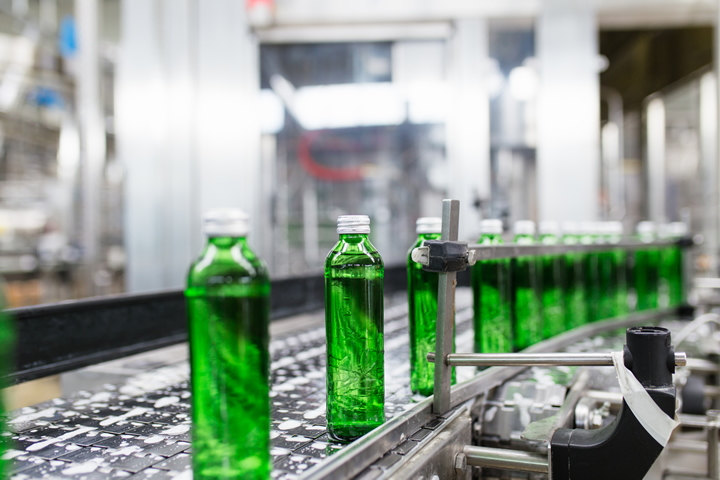How Effective Recycling Practices Can Impact the Redistribution of Global Resources and Wealth

Globalization and manufacturing practices since World War II have resulted in a significant chasm between resource-rich nations and everyone else. That's well understood. What's fascinating is that different nations' garbage is actually a redistribution of those resources—we distribute goods throughout the world and the wealth of a nation can be seen in the garbage.
The United States and China have dominated global manufacturing for nearly 80 years, enabled in part by the fact that both countries are resource-rich and have had the capabilities to shoulder the manufacturing load from financial and human-capital perspectives. Since that time, global trade has become more prevalent. Through that trade, the resources originally found in the US and China are being distributed to countries across the globe in the form of purchased goods. One nation's trash is another nation's treasure.
The next leap forward in sustainability is going to be reclaiming the resources contained within the garbage and providing feedstock back into the manufacturing process. If we're able to better optimize recycling programs, we'd be able to give these countries the raw materials they would never have had otherwise.
With this new redistribution, there are several things that could occur. Looking at it from the perspective of converging with other technologies, such as hyper-automation for resource reclamation, manufacturing of goods could be done locally. This enables different nations to contribute to their overall GDP by leveraging the wealth of resources in their garbage to create value and increase trade goods.
It also brings far more resiliency and independence to their supply chain by being less susceptible to manufacturing outages and military or trade wars, for example. The cascading impacts of this would also result in job creation, an overall uplift in salaries, and higher standards of living.
All of this obviously depends heavily on effective recycling or reuse programs that "harvest" the resources from garbage. Currently, the ability does not really exist at any real scale to effectively recycle or begin a reclamation of all of the different resources contained within landfills.
The primary problem to solve is effectively sorting the materials. When materials are put into the landfills—and similarly in single-stream recycling—there is no concern as to how those materials need to be supported, given that different material groups (wood, paper, plastic, glass, organic materials, etc.) leverage different recycling processes. There is a large mix of technical and human processes that manage the sorting of materials into their specific material groups. Most recycling solutions lack the ability, in part due to a human dependency, to scale the sorting operation.
Once the sort is able to differentiate between materials, the next phase will be to target an end state for the sorted materials. In Level 1 and 2 plastics, for example, there are multiple consumers for those plastic types who are able to manufacture polyester thread from the recycled materials to produce everything from backpacks to yoga pants. Other plastics may need to be returned to a petroleum base to be fed back into the manufacturing process. Having a plan for the end state for all sorted materials is critical to scaling up the ability to recycle.
This dynamic could impact global supply chains and manufacturing possibilities. Look at the process known as pyrolysis, which can be used to convert plastics back to a petroleum base. This petroleum can feed back into the plastics manufacturing process as feedstock for creating new plastics. By feeding these materials into the manufacturing process, supply chains can be impacted by:
1. Having raw materials available locally; a local manufacturing capability can be supported that diminishes reliance on a global supply chain.
2. Providing the ability for raw materials to be fed from many different sources into the manufacturing process, mitigating disruption in raw materials' availability by having a far more diverse set of producers.
3. The combination of both can significantly change the supply chain by mitigating the effect of global events or disruptions with regional/local manufacturing capabilities with distributed raw materials.
But innovations in technology's capability to execute the reclamation of resources from landfills need to occur first. Nations can prepare by starting to invest in recycling technology and recognizing that it needs to be more than tax deductions or shelters for larger commercial entities.
Understanding the long-term value of creating a cyclical economy around garbage is critical. As with any significant change, there will be multiple industries that will be disrupted—from the mining of metals to fuels to plastics. There is enough copper buried in American landfills to offset the need to ever mine for copper anywhere in the world, for example, but how might the copper industry react to this type of endeavor? Not quietly.
With those disruptions, there will undoubtedly be a groundswell of forces that try to prevent the change from taking hold. In the end, ambitious government initiatives and unrestrained resolve will be required to ensure the success of this type of initiative.
Sean Beard is a vice president at Pariveda, a consulting firm driven to create innovative, growth-oriented, and people-first solutions.
Featured Product

